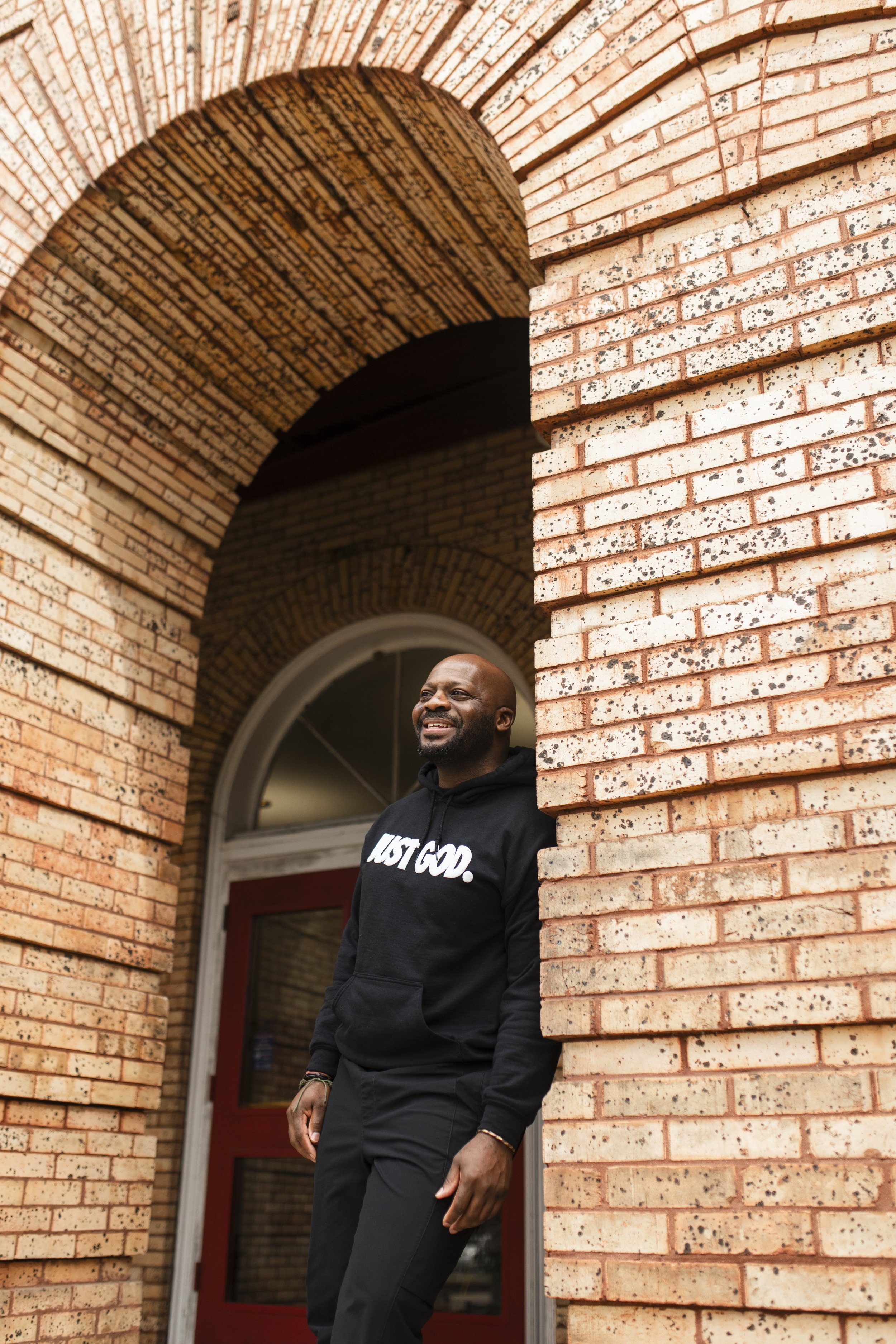Freeman McKindra: Our Calling Is To Come Alive
Story by Lily K. Lewis
Photos by Maddie Steele Photography
Before the interview even began, only minutes after meeting Freeman McKindra, I knew he was an incredibly kind and well-respected man on Lane College’s campus. While he posed for photos in front of Lane’s gorgeous old buildings, he greeted each student he passed by name and exchanged a greeting or joke specific to them. He laughed easily, and it was evident that he loved each student, and the college, as a whole, deeply.
I think this might be the only interview I’ve ever conducted where I didn’t have to ask a single question. As soon as we sat down, I was immediately drawn into his story. McKindra worked as a preacher for a period of time before he realized that he was more passionate about the people of the church than the institution of the church. He became increasingly frustrated by the idea that the church was intended to help people, but there were limits to what it could accomplish as an institution. He decided to resign from being a full-time pastor in order to invest in the people around him more. It was his calling; it was where he found his value. He knew that quitting his job would mean losing his income, but chuckling, he said, “Walmart is always hiring.”
While it took a leap of faith and humility to follow his calling, it has led to the life of service he now has at Lane College. After he quit working as a pastor, he received a call from a bishop who had mentored McKindra and who worked at Lane College. He was asked to apply for two positions: Director of First Year Experience and Chaplain. McKindra interviewed for both, and after many discussions, ended up getting both jobs.
This was a new, hybrid position that had never been attempted before, but Lane believed that blending the responsibilities of both jobs could greatly benefit the students. As Director of First Year experience, he was tasked with helping students with zero to 30 credit hours navigate their classes and thrive while living independently for the first time. As Chaplain, it was his responsibility to advise the students interested in ministry and to lead services. The mix of these roles was intended to make students more comfortable: the same person who signed you up for classes would be the same person who could offer you advice about friends, family, and personal struggles.
Freeman McKindra is a man of great openness and intentionality. Even though it was his interview, he insisted on encouraging me to follow my unique callings, which left me feeling uplifted listening to his testimony.
He mentioned a quote from Howard Thurman that states, “Don’t ask what the world needs. Ask what makes you come alive, and go do it. Because what the world needs is people who have come alive.” Building off Thurman’s quote, McKindra implored, “Students are valued contributors to society; you just need them to come alive. If they do not, we are lesser because of it. Students come to Lane with many different backgrounds, and I must help them navigate the noise and expose them to new experiences to help them see.”
One of McKindra’s favorite parts of the First Year Experience at Lane is a trip to Florida with several of the students. Many of them have never even seen the beach before this trip, and McKindra confessed, “In seeing the ocean, I want them to understand the world is bigger than they can see.” Furthermore, he implores the students to venture past what is familiar in order to find their calling, their dreams.
McKindra passionately explained, “Faith and preaching are an art form, but the goal is to expose people to beauty. I hate to think we could live our lives and not know beauty: the beauty of God and how people navigate life’s challenges to find vulnerability and strength and joy.”
Beauty can be found in many different places, just like callings and dreams, and it is important to have an awareness of sacred spaces and to take advantage of these opportunities. The gym or school can be just as much of a sacred space as a sanctuary in a church. McKindra challenges us to “stay in the gym, in school, in church, in prayer, until you feel stronger,” and to dream vividly, because everyone has potential and everyone has a calling. Furthermore, he claimed, “When you find the thing you’re called to do,” he snapped his fingers, “the world is different.”
There is not a singular definition of success in McKindra’s eyes: all of his students have different backgrounds and different goals and different desires. But he explained that “success stories are a byproduct of being committed to your calling.” For some students that means graduating Lane to become a teacher, police officer, NFL player, or factory worker. For some, it means pursuing a career in the military or earning a graduate degree. For others, it can simply be setting a good example for their siblings. Freeman McKindra “looks forward to what Jackson will become when young people are giving energy to the city and the old guard is committed to maintaining meaningful history in Jackson.”





